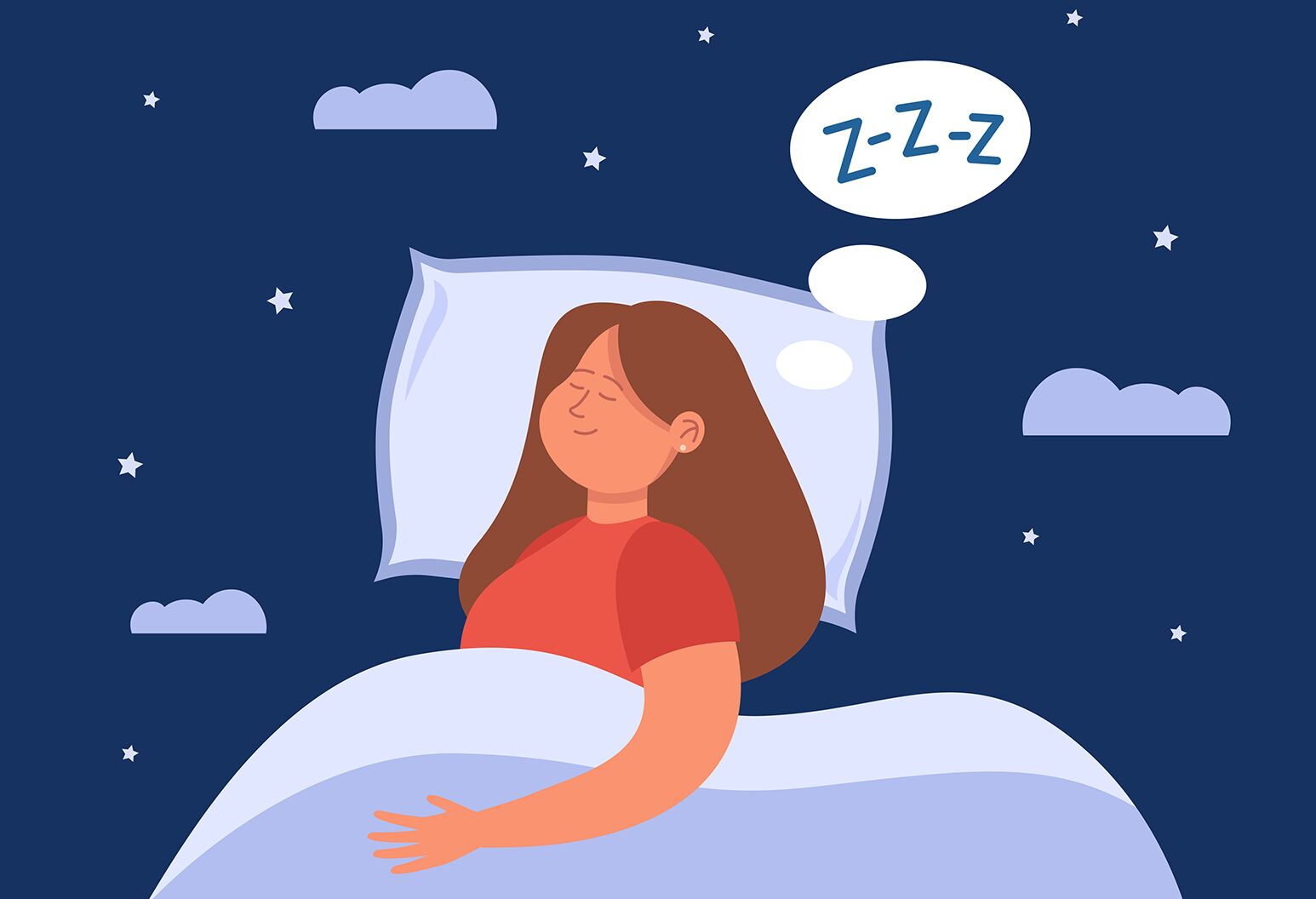sleep
How Sugar Cravings Lead To Poor Sleep

A sleep specialist tells us what to know about this deepest stage of sleep.
4 min read
When I was in high school, I had the pleasure of being invited to watch—from a wealthy friend’s skybox at Madison Square Garden—Michael Stipe spin and flail on stage with his band as they performed songs like “Finest Worksong,” “The One I Love,” and “Orange Crush.”
That was 1990, and I feel like that was the last time I got anywhere near REM—the band, or the sleep stage.
I’m a spectacularly poor sleeper, my body seeming to favor daytime naps over nighttime snoozes. My fitness watch tells me I’m rarely in REM, or rapid eye movement, the most active stage of sleep, when our eyes move swiftly and we dream, consolidate memory, process emotions, and allow our brains time to create novel connections and get healthier.
In a full night, humans cycle multiple times through three stages of non-REM sleep (NREM) and one stage of REM sleep. NREM includes three stages, N1, N2, and N3. Each full cycle of NREM plus REM sleep lasts between 90 and 120 minutes.
Stage N1 is light sleep, where the brain slows down and breathing is regular. Stage N2 is also light sleep, but body temperature and heart rate decrease even further. Stage N3 is deep sleep, when the body repairs muscles, tissue, and bones, and the brain cleanses itself of daily waste products. Brain waves are at their slowest and most forceful of the night during Stage N3. REM sleep, during which breathing becomes irregular, brain activity looks similar to what’s experienced during wakefulness, and our eyes move rapidly behind our eyelids.
Like what you’re reading? Subscribe to our newsletter and get the same great content delivered straight to your inbox!
By providing your email address, you agree to receive email communication from The Well.
But while all four stages are important, REM is particularly crucial, says Gary Wohlberg, MD, a sleep medicine specialist with Northwell Health.
“It helps with emotional processing, memory consolidation, preparation for wakefulness, recovery, and organization,” he says. “It’s clear that a lot of new synapse connections are being made. Some say it’s in preparation for wakefulness. It’s a time to get rid of unneeded things in the brain. There’s emotional recovery when you’ve been stressed. It’s basically like cleaning house and preparing for a new day.”
Without enough REM sleep, the brain can struggle to generate new and useful connections, and memory and learning can be negatively impacted. It can be difficult to concentrate and stay awake during the day, he adds, and in the long term this kind of sleep deprivation can lead to health problems like diabetes, obesity, cardiovascular disease, and depression.
So how do we ensure that we get REM sleep, and enough of it? There’s no tried and true formula, he says.
“We’re not really in control of this, so the key is to get good sleep,” he says. “We need to exercise to be healthy and get tired. We need to hydrate throughout the day, though not necessarily right before bed.”
It helps to practice good sleep hygiene, Wohlberg says.
“Practicing habits like going to sleep at the same time each day, blocking out blue light at bedtime, and avoiding nicotine, drugs, and alcohol will help to set you up for sleep success,” says Wohlberg. “Additionally, it’s important to remember that some medications are actually REM suppressers, like certain antidepressants or beta blockers.”
But let’s just say you’ve tried all of the tips and tricks (bananas, sleepy-time teas, a warm bath, and the like) and still struggle to get through the stages of sleep and into REM. “You just have to wait it out,” he says.
“If you’re sleep-deprived, your body will know that you clearly need REM and you will get it. Your body will look for it.” If this doesn't work, seek a sleep specialist to exclude sleep apnea or other disorders that upset the normal sleep mechanism.
The Well is Northwell Health’s commitment to the future of health care. In this time of information overabundance, much of which is inaccurate, unhelpful, or even difficult to understand, Northwell Health is on a mission to make a difference as an honest, trusted, and caring partner. The site connects with consumers to provide them with personalized content that reduces their stress, makes them laugh, and ultimately feel more confident and capable on their healthcare journey.